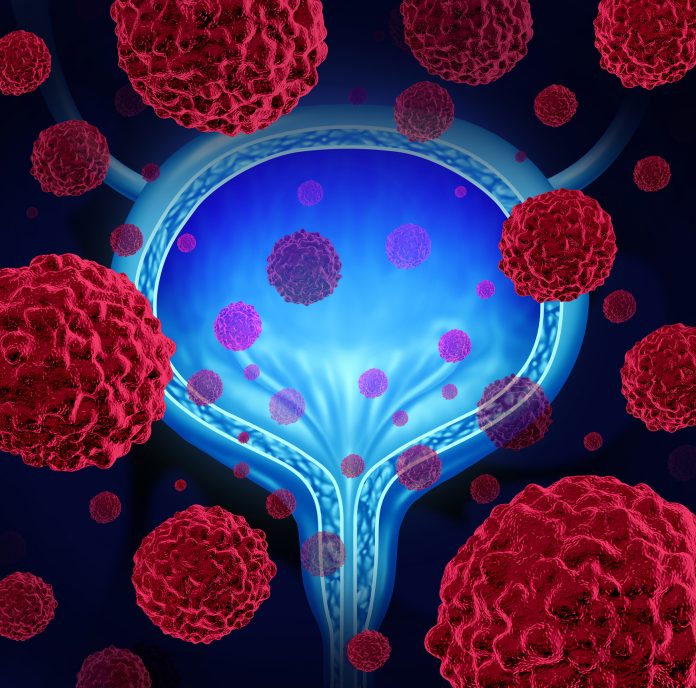
Adding immunotherapy to chemotherapy almost doubled survival in patients with an advanced type of bladder cancer, in the first of its kind trial reported in The New England Journal of Medicine and at the annual meeting of the European Society for Medical Oncology (ESMO). The multicenter, international study was co-led by Mount Sinai researchers and the lead author was Michiel S. van der Heijden from the Department of Medical Oncology, Netherlands Cancer Institute, Amsterdam.
“No new agent when added to first-line standard-of-care cisplatin-based chemotherapy has improved overall survival in metastatic urothelial carcinoma until now,” says Matthew Galsky, MD, Co-Director of the Center of Excellence for Bladder Cancer at The Tisch Cancer Institute, a part of the Tisch Cancer Center at Mount Sinai, and senior author of the report.
Bladder cancer is one of the top ten most common cancers in the world, with an estimated 550,000 new cases annually. This study looked at unresectable or metastatic urothelial cancer.
The Phase III trial, named ”CheckMate 901,” showed significantly improved outcomes in patients who received the immunotherapy nivolumab (BMS’s Opdivo) with a combination of the chemotherapies gemcitabine and cisplatin, compared to those who received just the chemotherapy combination. Nivolumab is a monoclonal antibody immune checkpoint inhibitor that upregulates the immune system to fight cancer.
Half the CheckMate 901 patients received intravenous nivolumab plus gemcitabine–cisplatin every 3 weeks for up to six cycles, followed by nivolumab every 4 weeks for a maximum of 2 years. The other half received gemcitabine–cisplatin alone every 3 weeks for up to six cycles. The primary outcomes were overall and progression-free survival.
The number of patients with no evidence of advanced bladder cancer after treatment was nearly twice as high in the group that received chemotherapy with nivolumab,
“These results support nivolumab plus cisplatin-based chemo as a new standard approach for the treatment of metastatic urothelial cancer,” said Glasky.
A total of 608 patients participated in this trial, half receiving just chemo, and half getting chemo and nivolumab. Both overall survival and progression-free survival were higher in patients on the immunotherapy-chemotherapy regimen after almost three years. The median duration of complete response in those patients was 37.1 months compared to 13.2 months for patients on just chemotherapy.
Platinum-based chemotherapy is the standard of care for previously untreated patients with unresectable or metastatic urothelial carcinoma. First-line cisplatin-based chemotherapy shows a response in more than 40% of patients, with a median overall survival of approximately 15 months. But durable responses with this treatment are uncommon.
Switch maintenance treatment with the immunotherapy Avelumab (Pfizer’s Bavencio) is already a standard of care for the subgroup of bladder cancer patients who have not had disease progression during or immediately after first-line platinum-based chemotherapy.
Nivolumab is an antibody directed against programmed death 1 (PD-1) and is approved for melanoma, non-small cell lung cancer, malignant pleural mesothelioma, renal cell carcinoma, classical Hodgkin lymphoma, squamous cell carcinoma of the head and neck, urothelial carcinoma, MSI-H or dMMR metastatic colorectal cancer, hepatocellular carcinoma, esophageal cancer, gastric cancer, and gastroesophageal junction cancer.
The drug is also approved for locally advanced or metastatic urothelial carcinoma after previous platinum-based chemotherapy as well as for adjuvant treatment of high-risk muscle-invasive urothelial carcinoma after radical resection. Phase II trials (including BLASST-1) suggested cisplatin-based chemotherapy in combination with PD-1 blockade could become a standard of care.













